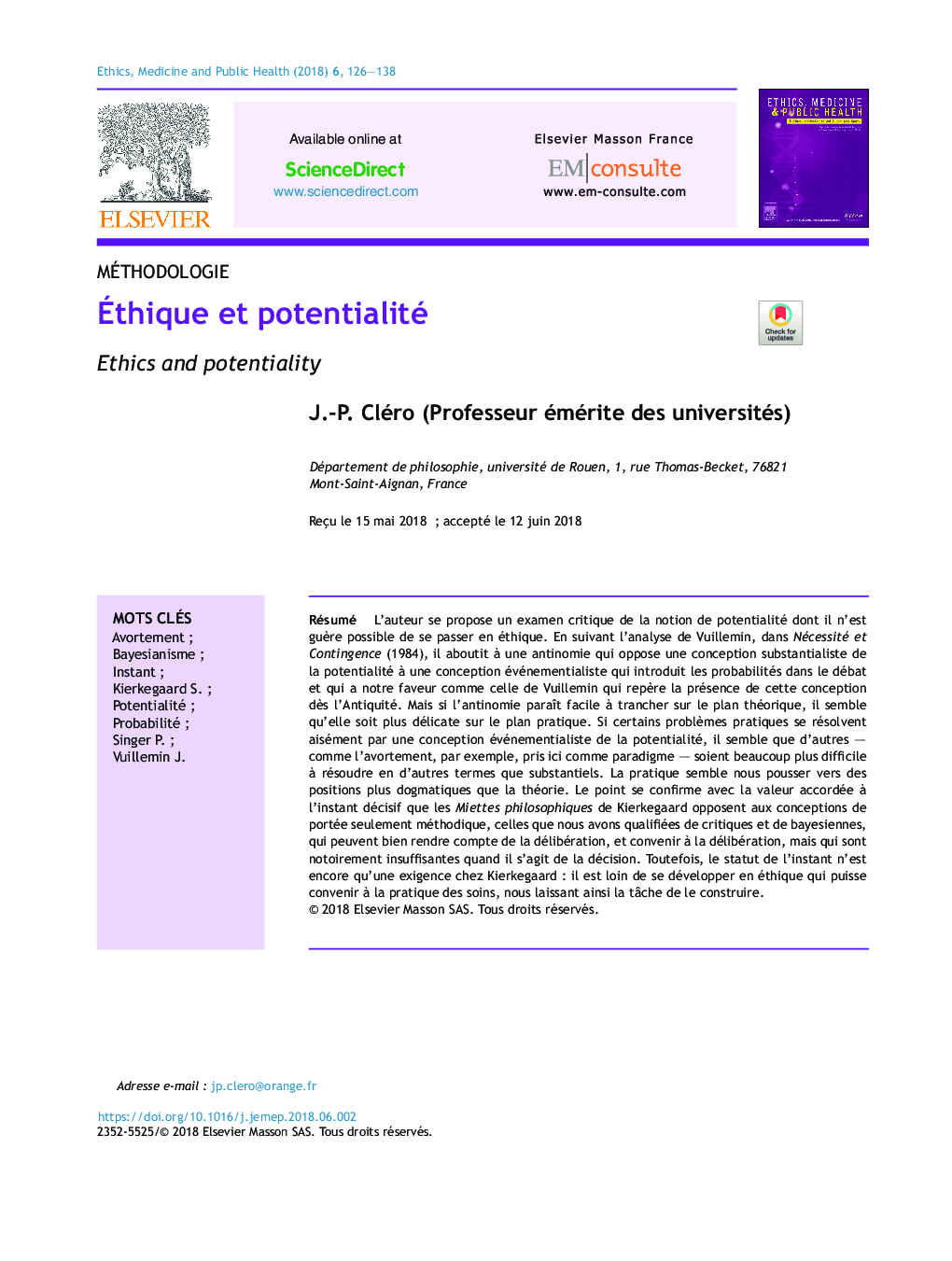| Article ID | Journal | Published Year | Pages | File Type |
|---|---|---|---|---|
| 11031297 | Ethics, Medicine and Public Health | 2018 | 13 Pages |
Abstract
The author intends to criticize the notion of potentiality without which it is impossible to make progress in ethics. Following the analysis of Vuillemin in Necessity and Contingency (1986), he leads to an antinomy that is a contradiction between a substantialist conception and an eventualist conception of the potentiality. This latter conception brings in probabilities in the debate and is in favour with Vuillemin that spots its existence as soon as Antiquity. However, if the antinomy seems easy to resolve on a theoretical level, it seems a more delicate issue on the practical level. If some practical problems are easily solved by the eventualist meaning of potentiality, it seems that some others - as abortion, for instance, that will be used, here, as a paradigm - were more difficult to be solved in avoiding substantial terms. Practice seems pushing ourselves to positions more dogmatic than theory. The point is confirmed through the notion of decisive instant that is opposed in Philosophical Fragments by Kierkegaard to conceptions of methodical import, that we described as critical and bayesian. These critical conceptions may take deliberation into account and may combine with it, but they become manifestly inadequate when the matter is the decision. However, the status of the instant remains nothing but a requirement in Kierkegaard: it is far from developing an ethics that matches with cure practice and so it lets us the task to construct it.
Related Topics
Health Sciences
Medicine and Dentistry
Critical Care and Intensive Care Medicine
Authors
J.-P. (Professeur émérite des universités),
